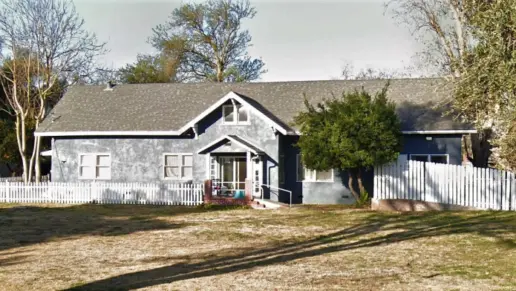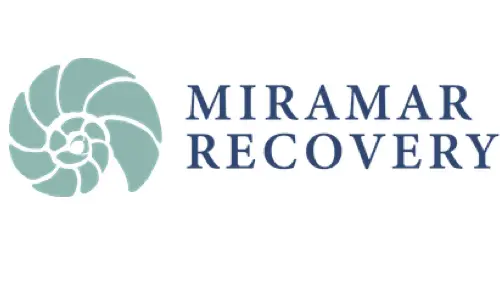About McKinley Childrens Center
McKinley Children’s Center in San Dimas, California, helps youth, families, and communities become stronger and healthier through programs that promote positive choices, healthy lifestyles, and effective life skills to overcome challenges and set goals for success. They have educational programs, residential programs, adjustment support for post release refugee children, a family resource center, foster care services and supports, and mental health treatment for children, youth and families.
All treatment programs at McKinley Children’s Center run from a trauma-informed perspective. They want each child, adolescent and family to feel trust, empowerment, support, and collaboration as they work with their health care team. Each member of staff is trained and qualified to provide compassionate and evidence-based treatment and emotional support to individuals from diverse situations and facing a sundry of mental health, environmental and life issues.
There are community and school related services that can be incorporated into a child’s educational pursuits and endeavors. Children will receive therapeutic services for a few hours each day throughout the week, and the rest of the day is spent on schooling and traditional educational courses.
They also have outpatient services for mental health and behavioral issues in children and adolescents. Psychological assessments and evaluations help mental health professionals and consulting psychiatrists develop the right therapy care plan to meet a person’s individual needs. Clients can get help, whether they are struggling from learning disabilities and social challenges or from behavioral and psychological difficulties that are stifling or interfering with their full potential.
Trauma-informed therapeutic behavioral services as part of treatment help replace maladaptive behaviors with new, more positive and effective habits and behavior choices. This technique of therapy is used in conjunction with cognitive behavioral therapy and the Seeking Safety treatment model to help those who are plagued with PTSD after traumatic events in their lives.
Residential care is available for young men who need more support than they can get in a home or community environment. Boys between 10 and 18 years of age can find continuous support and supervision through a safe and stable environment until they can find a stable and loving home to return to or be placed in for long term success. They are offered support, substance abuse treatment, recreational and social events, groups on stress and conflict management, emotional and spiritual support and physical activities such as swimming, biking, and team sports to promote physical and emotional health. Every three months a care plan for each individual will be reassessed to ensure that it is still meeting their ever-changing needs.
Rehab Score
Other Forms of Payment
Medicaid is a state based program that helps lower-income individuals and families pay for healthcare. Medicaid covers addiction treatment so those enrolled can use their coverage to pay for rehab. When a program accepts Medicaid the client often pays very little or nothing out of their own pocket.
Addiction Treatments
Levels of Care
Treatments
Many of those suffering from addiction also suffer from mental or emotional illnesses like schizophrenia, bipolar disorder, depression, or anxiety disorders. Rehab and other substance abuse facilities treating those with a dual diagnosis or co-occurring disorder administer psychiatric treatment to address the person's mental health issue in addition to drug and alcohol rehabilitation.
Mental health rehabs focus on helping individuals recover from mental illnesses like bipolar disorder, clinical depression, anxiety disorders, schizophrenia, and more. Mental health professionals at these facilities are trained to understand and treat mental health issues, both in individual and group settings.
Programs



Clinical Services
Cognitive Behavioral Therapy (CBT) is a therapy modality that focuses on the relationship between one's thoughts, feelings, and behaviors. It is used to establish and allow for healthy responses to thoughts and feelings (instead of unhealthy responses, like using drugs or alcohol). CBT has been proven effective for recovering addicts of all kinds, and is used to strengthen a patient's own self-awareness and ability to self-regulate. CBT allows individuals to monitor their own emotional state, become more adept at communicating with others, and manage stress without needing to engage in substance abuse.
Whether a marriage or other committed relationship, an intimate partnership is one of the most important aspects of a person's life. Drug and alcohol addiction affects both members of a couple in deep and meaningful ways, as does rehab and recovery. Couples therapy and other couples-focused treatment programs are significant parts of exploring triggers of addiction, as well as learning how to build healthy patterns to support ongoing sobriety.
Research clearly demonstrates that recovery is far more successful and sustainable when loved ones like family members participate in rehab and substance abuse treatment. Genetic factors may be at play when it comes to drug and alcohol addiction, as well as mental health issues. Family dynamics often play a critical role in addiction triggers, and if properly educated, family members can be a strong source of support when it comes to rehabilitation.
Group therapy is any therapeutic work that happens in a group (not one-on-one). There are a number of different group therapy modalities, including support groups, experiential therapy, psycho-education, and more. Group therapy involves treatment as well as processing interaction between group members.
In individual therapy, a patient meets one-on-one with a trained psychologist or counselor. Therapy is a pivotal part of effective substance abuse treatment, as it often covers root causes of addiction, including challenges faced by the patient in their social, family, and work/school life.
Trauma therapy addresses traumatic incidents from a client's past that are likely affecting their present-day experience. Trauma is often one of the primary triggers and potential causes of addiction, and can stem from child sexual abuse, domestic violence, having a parent with a mental illness, losing one or both parents at a young age, teenage or adult sexual assault, or any number of other factors. The purpose of trauma therapy is to allow a patient to process trauma and move through and past it, with the help of trained and compassionate mental health professionals.
Contact Information
762 Cypress street
San Dimas, CA 91773


